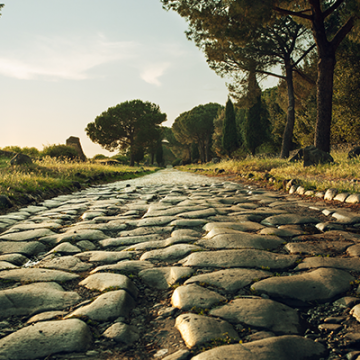

Year 12 Ancient History Units 3 and 4
Overview
Unit 3 and 4: Ancient history
The ancient civilizations of Egypt and Rome continue to have a powerful influence on the world. These societies were shaped by the complex interplay of social, political and economic factors. Trade, warfare and the exchange of ideas between societies influenced the way people lived.
In Unit 3 students explore the social structure of Egypt and then the dramatic events of the Amarna crisis, when Pharaoh Akhenaten dared to radically dismantle the traditional religious beliefs and practices, replacing them with the worship of the sun-god Aten.
In Unit 4 students explore the social structure of Rome and then the colossal event of the collapse of the Roman Republic which is often associated with the assassination of Julius Caesar in 44 BCE.
In both Units, students develop the skills of historians, asking informed questions and evaluating the importance and reliability of primary and secondary sources.
Who is it for?
This subject is for students who enjoy the wonders of ancient civilisations and want to know how they influence our world today. It is for students who want to know why societies differ, why they change and how some individuals manage to assert enormous power over other people.
Ancient History would suit students who want to study any field of history, particularly that of ancient civilisations, but it would also benefit students who want to study contemporary political, social or religious movements: investigation of the political manipulation and propaganda of the past, enables us to scrutinise our current world.
What do you do?
Read translations of primary sources.
Pose questions about the social systems of ancient societies.
Hypothesise explanations for features of these societies and for the causes of change.
Interpret the symbols in art and architecture.
Evaluate the reliability of primary and secondary sources.
Research and comparing the theories of different historians.
What skills do you need?
There are two main skills required in this subject:
The ability to recall details about important events, people and places: the facts that we have inherited from the thousands of historians who have dedicated their lives to this study.
The ability to question and evaluate the theories of historians.
What skills do you develop?
- Interpreting
- Comparing
- Questioning
- Hypothesising
- Critical analysis
Requirements
Information on Ancient Egypt and Ancient Rome in readily available on the internet. No resources need to be purchased for Unit 3.
The text book recommended for Unit 4 is: D Mootz, D Millar, J Daly, M Cocks, Ancient Rome, published by HTAV 2017. It may be available second hand.

Things to think about
Ancient History is assessed through short answer written responses and essays so it suits students who have confidence in these skills or are willing to work on refining them.
Students will need to devote time to memorising the names of people, places and dates so that they can demonstrate this knowledge under assessment conditions.
Ancient History will require consistent study of at least 6 hours each week.
Things you can do now
There are many freely available resources on Ancient Egypt and Ancient Rome.
In preparation for Unit 3
Watch Ancient Egypt: Crash Course World History #4.
While crashing through thousands of years of Ancient Egyptian history in 12 minutes record 3 things you would like to know more about and then do your own research on them.
Watch Egyptian Gods Explained.
Religious beliefs had a vital role in Egyptian society but they changed over time. While watching this video:
- Record the names and roles of the gods.
- Record details about at least 4 rituals, myths or beliefs.
Watch The Strange Life of Akhenaten
While watching, record at least 2 aspects of this king’s reign that you would like to know more about and then research these topics.
Watch The Mystery Of Egypt’s Pharaoh Queens: Egypt’s Lost Queens
While watching focus on the reign of the two queens, Hatshepsut and Nefertiti. This content starts at 14 minutes and ends at 46 minutes. Record at least 4 facts about both of these queens.
In preparation for Unit 4
Watch The Roman Empire. Or Republic. Or…Which Was It?: Crash Course World History #10.
While crashing through a history of perhaps the world’s most influential civilisation in 12 minutes record 3 things you would like to know more about and then do your own research on them.
Watch Who were the Vestal Virgins, and what was their job?
While watching record 3 facts about the role of these women. Speculate on the influence this custom had on other women in Roman society.
Watch, Fall of the Roman Empire… in the 15th Century: Crash Course World History #12.
While watching record at least 3 aspect of Roman civilisation that have continued to influence the world.
Things to have a look at
VCE History Study Design
There are many history subjects outlined in this Study Design.
Follow the links to Unit 3 and Unit 4 Ancient History.
Introducing Ancient Egypt
An Introduction to the Ancient Egyptian Civilization
The Roman Republic – An introduction to Rome.
How did the Roman Republic Begin?